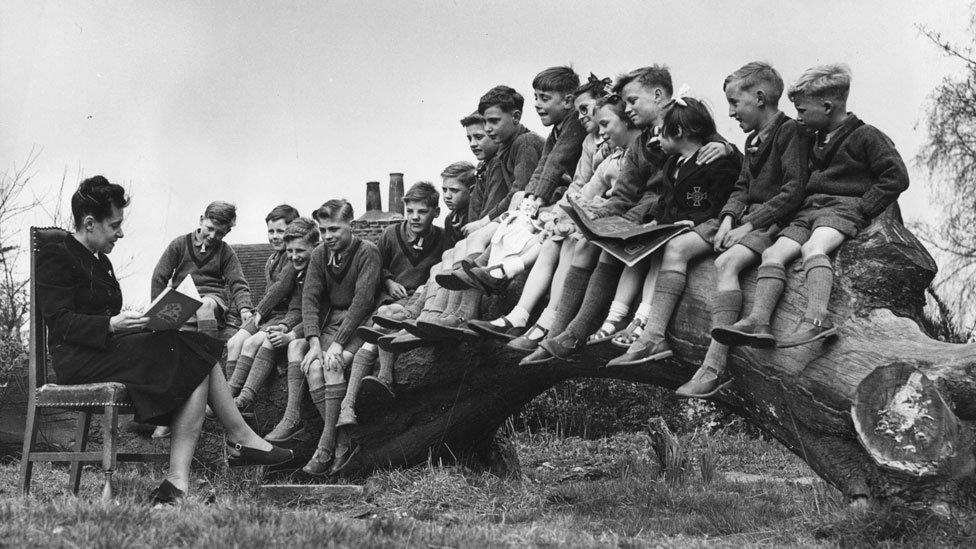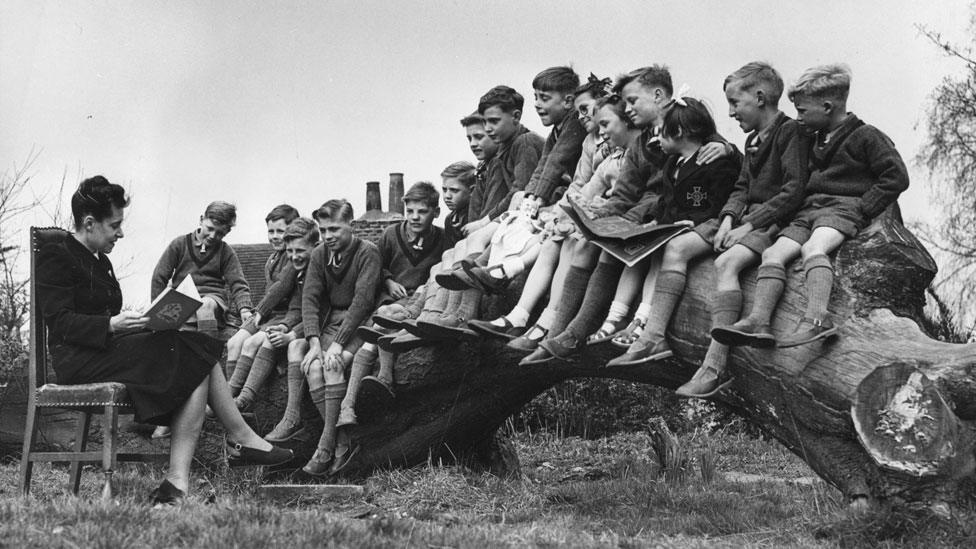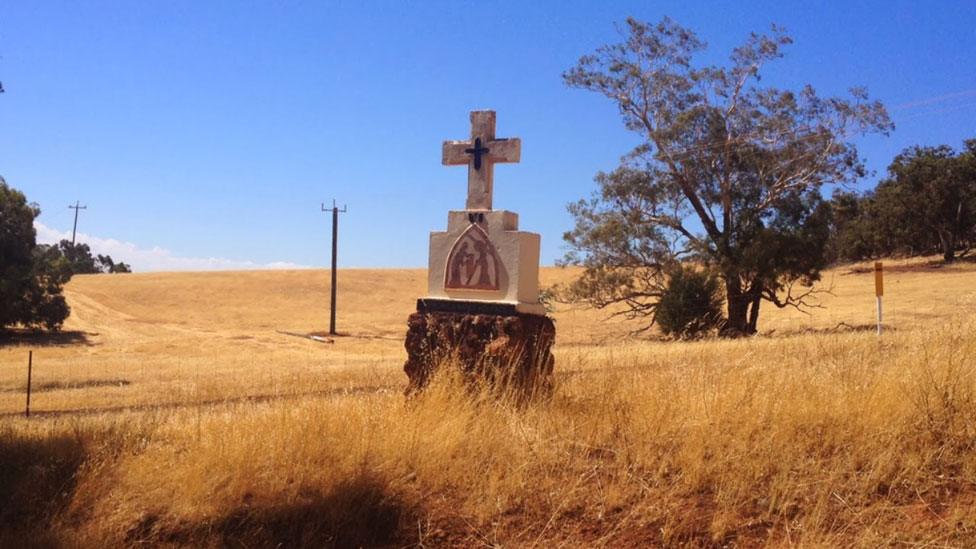Britons sent abroad as children to get compensation from UK government
- Published

A group of children from a school in Stevenage were among those to be sent to the Fairbridge school in Molong, Australia
The UK government has agreed to pay compensation to thousands of Britons who were sent abroad as children under a resettlement scheme.
Between 1945-70, around 4,000 children were sent to institutions in the Commonwealth.
Some were beaten, raped and forced to do manual labour - sometimes resulting in lifelong emotional problems.
The Department for Health said it accepted the scheme was "fundamentally flawed".
In March, the Independent Inquiry into Child Sexual Abuse (IICSA) said the government should compensate all 2,000 former migrants still alive within 12 months.
Around two dozen victims have since died but their relatives will be able to claim compensation on their behalf.
In 2010, then-Prime Minister Gordon Brown apologised on behalf of the government for sending British children abroad, describing it as a "shameful episode" in Britain's history.
The Department of Health said it would set up the compensation scheme as quickly as possible. The government was previously criticised for its lack of speed in setting up a service to offer financial compensation for victims.
The IICSA found children suffered sexual and emotional abuse, as well as forced labour. Some were also wrongly told they were orphans, depriving them of the opportunity of meeting their birth parents. Victims suffered lifelong emotional and psychological problems as a result.
"I lost everything I ever had" - Rex Wade was one of the last children to be sent away
The resettlement scheme saw children from deprived backgrounds who were often already in social care - some as young as three years old - sent away with the promise of a better life.
After World War Two, 3,000 children were sent to Australia, 559 to New Zealand, 329 to Canada and 276 to then-Southern Rhodesia. Many ended up in austere and at-times brutal religious institutions.
Overseen by government, and managed by charities and the church, it was part of a longstanding policy aimed at easing the strain on UK orphanages and strengthening the British population abroad.
- Published29 August 2018

- Published1 March 2018

- Published26 February 2017
